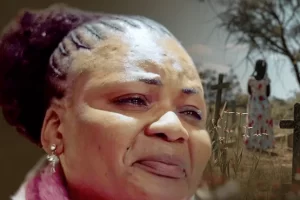September 18, Uganda Police Force arrested eight people for illegally ferrying street children into Kampala and neighbouring areas. Ms Florence Nakiwala Kiyingi, the state minister for youth and children affairs said the eight were being held at Napak and that 11 more people were being hunted over the same.
“We have been looking for 19 people, police has managed to arrest eight and the rest are still on the run. We are hoping that probation officers and other stakeholders can continue to help police on the same,” she said. Just s year ago police also intercepted 41 Karimajong children being trafficked to Kampala from a Gateway Kampala bound bus as other Children in Karamoja sub-region celebrated the international day of the African child.

In the latter incident, the children aged 8 to 16 were aboard the Gateway bus with adults seated away from them to disguise as other passengers.
Although the Police is acting very fast to stop these children from being trafficked, the trouble is how many Karamojong children are being trafficked out of Kaboong, Moroto, Nakapiripirit, Kotido, Abim and Napak districts? And for how long has this trade been going on.
According to local sources, the children are bought directly from parents at a fee-only enough for two meals Shs. 5000, there is also use of force or other forms of coercion, abduction, fraud, deception after exploiting the poverty situation of a particular home.
Reports in Karamoja sub-region indicate that many of these children are sold in cattle markets or by intermediaries and forced into situations of domestic servitude, sexual exploitation, herding, and begging in the streets of most towns in Uganda.
The discreet nature of child trafficking makes hard statistical information inherently difficult to produce but few leaders in Karamoja point at 1982 as the time child trafficking started.
But even when trafficking is revealed, victims are reluctant to report their experiences for fear of being prosecuted.
In most towns in Uganda where Karimojong children have been taken, they have become subject to domestic servitude, commercial sexual exploitation, cattle herding, and begging; harsh working conditions, physical and sexual abuse, withholding of food, and being confined to their employer’s residence.
“In some cases children accept themselves basing on the poverty situation at home, they want to make a living outside their home and lack of local prospects, unemployment and a large number of children make parents susceptible to the promises of money or education for their children given by the traffickers,” Mr. Martin Longole, an elder at Namalu in Nakapiripirit.
“Sometimes we have had the young boys and girls voluntarily leaving their villages, homes to escape the miserable living conditions at home,” adds Mr Longole.
Mr. Michael Lokawua, a former presidential adviser on disarmament says the environment in Karamoja is very harsh and that it is made more difficult by drought which forces most families to sell off their children.
“Because life is so difficult, some parents sell their children, the children are then resold at cattle markets by middlemen who are usually women on certain days, bringing about Shs.30,000 each. Some of them end up as beggars pimped out on the streets of most towns in Uganda,” says Mr Lokawua.
Ms Esther Anyakun, the Woman MP for Nakapiripirit says studies done in 2007 showed an increasing tendency for young people to leave the area looking for work with others they did not know, inviting more abusive trafficking situations.
“Because of poverty, mothers and children have moved to towns, hoping to seek out a better life by street begging. This movement has been caused by the isolation and abject poverty of the area but as legislators, we are up to end this to save our children,” Ms Anyakun.
Mr Ezekiel Lutu, an elder in Namalu in Nakapiripirit says on certain days of the week, you can buy a Karamojong child at the cattle markets along the Uganda-Kenya to Kenya, Uganda-Sudan borders to Juba at a price of about Shs. 20,000.
Some people describe this activity as modern day slavery. But unlike historical slavery, which involved adults, today’s includes children being traded for money or food. Some are sold; others are rented.
According to a published report by Save the Children in Uganda CHILD 2006, trafficking is fast emerging among several other waves of abuse afflicting children in Karamoja that this report raises serious incidences of violence ranging from child trafficking, child abuse to children in conflict with the law and child labour.
The report highlights the long-term physical and psychological dangers that this type of violence is likely to have on children, particularly risky behaviours and more violence towards others in adulthood.
“The child will probably be forced to beg on the streets of Kampala, perhaps being beaten throughout the day, because a crying child stirs the sympathy of by-passers more effectively but the worst thing is that all earnings will go to the child’s master, while the child will be forced to subsist in dismal and unsafe conditions,” says a source that asked not to be named.
Ms Jane Acio Akiror Iteso in Soroti is a businesswoman of many trades including human trafficking.
At a Ngariam market in Katakwi, everybody’s eyes seem to be glued on her. This middle-aged woman is famous for connecting the Karimojong girls to the locals, a job she accepts gladly although she does not want her picture to be taken.
“I don’t sell the girls as people allege, I just connect them for employment and these children begin by working in my home. Amongst most Karimajong parents, I am regarded a good Samaritan because what I do is an act of goodwill, to save the children from hunger, poverty,” says Ms Acio.
She explained that her intentions for the children are good and that she gives them food, which they regularly send home to their relatives.
“I usually keep up to about 20 girls, several of them return home to look after their parents or get married,”Ms Acio added.
Several people in Karamoja report incidences of Karimojong children being trafficked into Teso, Mbale, Juba and beyond towards Kampala every week.
Ms Anna Ayopo an Moroto area local councilor says the girls are being trafficked in Ocorimongin and Ngariam markets in Katakwi at Shs. 5000 then later the buyers take them out and resale them at a higher fee.
The LCV chairman for Moroto Mr Andrew Keem Napaja confirmed that there is an influx of Karimojong women and children in several towns in the country and blamed it on some well-to-do locals who have turned it into a business.
Mr. Napaja says there are people who are interested in helping out the Karimajong children due to poverty and that some of them are being mistaken as trading in girls in Karamoja.
“Facts on ground indicate that many of these young girls are transported to Teso by businesswomen on Fuso trucks and on arrival, people interested in them pay the businesswomen the transport fare and then take the girls but this is going to stop, we have put measure in place to deal with this,” said Mr. Napaja..
Mr Abura Apalalu, also a local council chairperson in Longorinyangai in Nakapiripirit says about 40 Karamojong children, from as young as nine years, are taken to Teso every month.
“Severe food shortage in Karamoja caused by prolonged droughts force many of Karimajong girls into Teso to work in order to earn a living but when they reach there; they are mistreated, turned into sex objects against their will,” said Apalalu.
He explained that their investigations have so far closed into the persons who connect the girls from Karamoja to Teso to find their way to other parts and that they will soon have these people arrested.
Whereas the communities in most town in Uganda are more aware of the dangers of trafficking, they still consider child trafficking as an acceptable strategy for economic survival.
Local leaders in Karamoja sub-region says that until government implements comprehensive anti-trafficking legislation; increase efforts to prosecute, convict, implement the prevention of trafficking in Persons Act, 2009 and punish trafficking offenders; institute a unified system of documenting and collecting data on human trafficking cases for use by law enforcement, child trafficking in Karamoja would still continue.
Capt Isaac Owera the UPDF 3rd division spokesperson says that apart from stopping Child trafficking by intercepting the children, they are determined to have the people involved in the trade arrested and have them prosecuted in order to end child trafficking.
“Together with our colleagues, the police, we usually intercept the children in buses but the vice is on the increase that is why you see many of these children in Kampala, Jinja, Mbale, Masaka, Iganga streets,” said Capt Owera.
Although government of Uganda although is a signatory to International legislation; United Nations Protocol to Prevent, Suppress and Punish Trafficking in Persons, especially Women and Children, supplementing the United Nations Convention against Transnational Organized Crime (2000), it does not fully comply with the minimum standards for the elimination of child trafficking.
A police officer who asked not to be named said Ugandan Police Force’s Child and Family Protection Unit has investigated a number of suspected trafficking cases between 2007 to 2017 but that courts have failed to move pending cases through the judicial process.
Despite efforts by local district leaders, reports say there remains an unabated movement of children out of Karamoja and that attempts at closing in on the perpetrators of this illicit trade are frustrated due to the nature of its operation.
Although the Constitution of Uganda states that children under 16 years of age have the right to be protected from social and economic exploitation and that they should not be employed in work that would endanger their physical, mental, spiritual, or moral health and social development, or that would interfere with their education.
The Constitution also prohibits child slavery, servitude, and forced labour. And article 125 of the Penal Code prohibits the procurement of girls under the age of 21 for sex in Uganda. Violations of the code are punishable by up to seven years in jail.
But the enforcement of these laws will determine whether or not child trafficking can be controlled in this part of the country where it has turned into a lucrative business.




